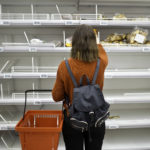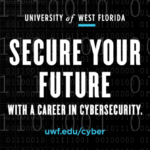Kathleen Heubach, Education
Kathleen Heubach, director of the Institute for Innovative Community Learning in the University of West Florida’s College of Professional Studies and a faculty member in the School of Education, is an active member in the community, teaching tomorrow’s educators, performing academic research and participating in community service. Her expertise is literacy in schools and transforming low-performing schools into high-performing community institutions.

Dr. Heubach, you have established a successful academic career by integrating teaching, research and community outreach. Speak more about your current research focus.
My current research focus is reading-related school reform, particularly literacy reform in schools that manage to beat the odds against poverty and chronic low achievement. I am looking at particular practices such as leadership and professional development as common factors among schools that transform themselves from traditionally low-performing into high-performing communities of practice. The current award through the Florida Department of Education supports a partnership between a Virginia elementary school and Weis Elementary School in Pensacola. Although the schools are at two different points along the reform continuum, both have reversed the trend and are effectively working toward meeting all students’ needs. As I work alongside the teachers and administration at Weis, I will examine how certain factors impact teacher and student performance in both schools. The grant also supports School of Education students as tutors and mentors to provide instructional support at Weis and observe best practices.
That makes me think about the cycle of teaching, research and community service.
Yes. I think this is a crucial factor for junior faculty—to stand back and carefully consider what activities will create this natural linkage so that one element supports the others. If you are smart, your efforts will build upon each other and create a win-win situation for faculty, students and the community.
Speak a little about the Supplemental Education Services (SES) that you direct through the Institute for Innovative Community Learning.
Here again is an example for junior faculty: start small. My first academic assignment was at Virginia Commonwealth University. There I trained in the Howard Street Reading program and brought it to local schools. When I came to UWF, I met with local schools to introduce the program here. Spencer Bibbs Elementary School partnered with me, and we established a successful after-school program. During that time, I joined a local UWF sponsored community collaboration committee and learned about a new statewide initiative: Supplemental Educational Services that was to be contracted out to DOE-approved providers. I wrote the proposal, and we were approved by the state to provide SES services in Northwest Florida. We went from a little project in Virginia to a region-wide impact area in Northwest Florida. We currently have 35 schools in four districts utilizing the service. SES allows me, my colleagues and our students access to a living laboratory to continue learning and applying what we learn in the community. My work with SES also allowed me to work with Weis Elementary, and now I am energized by a new direction in my research.
So you never know where your research may take you, but you follow your passion, beginning in a small way, and taking what you learn to the next level. Then you meet people, and doors begin to open.
Were you always interested in reading? How did you get started in research in this area?
I always knew I wanted to be a teacher, even though my father tried to convince me to be a nurse like my sisters. I was blessed with wonderful mentors along the way who encouraged me. I attended UNF for my master’s, and I selected the University of Georgia for my doctorate due to their strong reading program. There I learned from top researchers about ethics and rigor in research which has sustained me throughout my work.
Why make the effort to win grants when your workload just increases?
That is where the learning is, where you impact your community, where you engage your students and hopefully contribute knowledge to your discipline.


